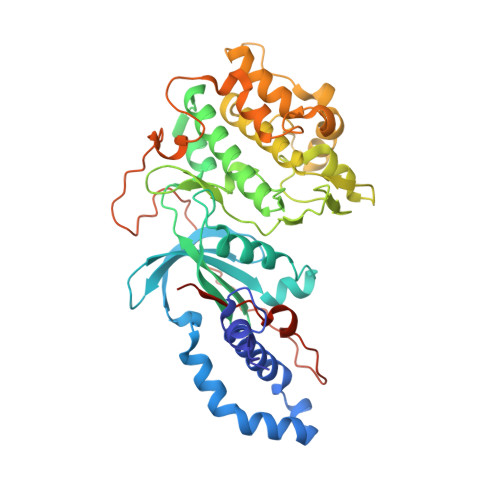Pyridylthiazole-based ureas as inhibitors of Rho associated protein kinases (ROCK1 and 2).
Pireddu, R., Forinash, K.D., Sun, N.N., Martin, M.P., Sung, S.S., Alexander, B., Zhu, J.Y., Guida, W.C., Schonbrunn, E., Sebti, S.M., Lawrence, N.J.(2012) Medchemcomm 3: 699-709
- PubMed: 23275831
- DOI: https://doi.org/10.1039/C2MD00320A
- Primary Citation of Related Structures:
3TV7 - PubMed Abstract:
Potent ROCK inhibitors of a new class of 1-benzyl-3-(4-pyridylthiazol-2-yl)ureas have been identified. Remarkable differences in activity were observed for ureas bearing a benzylic stereogenic center. Derivatives with hydroxy, methoxy and amino groups at the meta position of the phenyl ring give rise to the most potent inhibitors (low nM). Substitutions at the para position result in substantial loss of potency. Changes at the benzylic position are tolerated resulting in significant potency in the case of methyl and methylenehydroxy groups. X-Ray crystallography was used to establish the binding mode of this class of inhibitors and provides an explanation for the observed differences of the enantiomer series. Potent inhibition of ROCK in human lung cancer cells was shown by suppression of the levels of phosphorylation of the ROCK substrate MYPT-1.
- The Department of Drug Discovery, Moffitt Cancer Center, 12902 Magnolia Drive, Tampa, Florida, 33612, USA.
Organizational Affiliation:


















